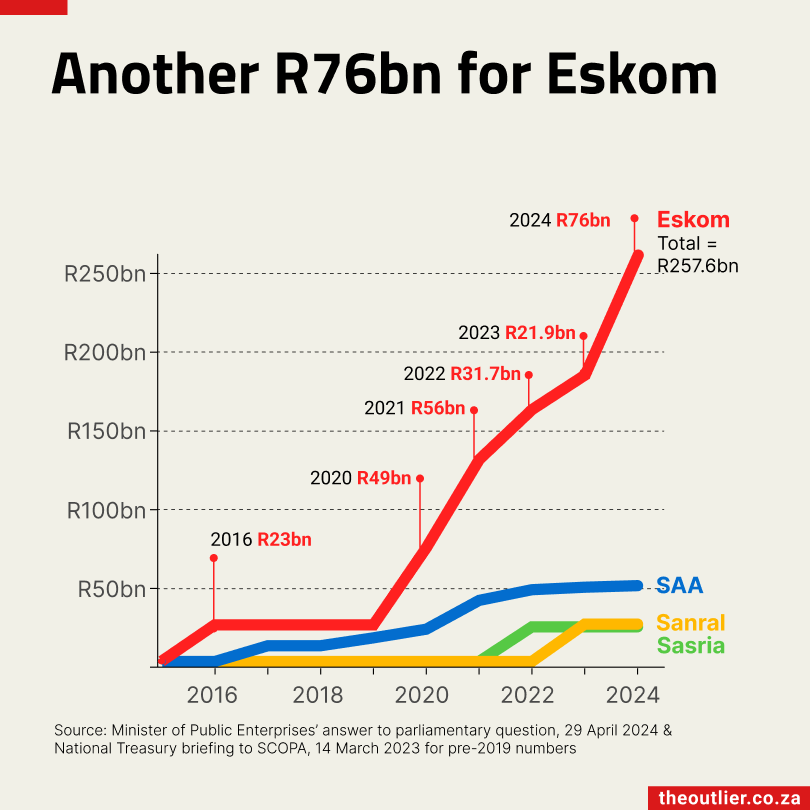In its Budget Review 2024, the Treasury included a section titled ‘How state-owned company support has become a drain on the fiscus’. It showed how in 2020, support given to these companies, which include Eskom, South African Airways (SAA), Denel, the Post Office and Transnet, reached R59.8-billion and has not dropped below that level since.
Eskom has received the most money by far.
The Treasury’s data included allocations up to 31 March 2023. Since then Eskom has received another R76-billion, according to a written response by the minister of public enterprises to a question posed by an MP in April 2024.
This is not a bailout, wrote the minister, but “government support to mitigate the fact that the allowed revenue under the NERSA Multi-Year Price Determination (MYPD) allowable revenue theory is understated”.
Be that as it may, this is the biggest “non-bailout” Eskom has received since the 2008/2009 financial year. Bringing the total amount the power utility has received from the government for “recapitalisation”, which seems to be the preferred word now, since 2015/16 to R257.6-billion. This is by far the most any SEO has received.

Why should we care about this? Most state‐owned companies rely on government bailouts to continue operations, according to the Treasury.
Even though major public companies, such as Eskom and SAA are intended to operate as sustainable businesses that generate profits and can borrow on the strength of their balance sheets.
Because they don’t they are a major strain on the country’s finances or, as the Treasury puts it in the Budget Review, the expansion of financial support to state-owned companies is ‘a key driver of South Africa’s increasingly constrained fiscal position’.
Despite receiving bailouts SAA is in business rescue, so too is the Post Office.